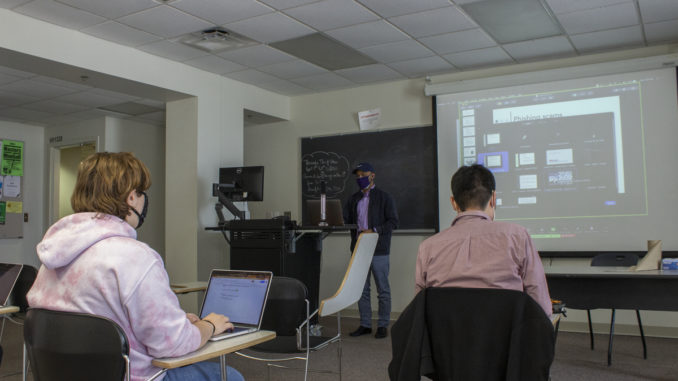
Truman State University has instituted a new policy regarding class engagement that will begin this summer.
The new policy stems from federal regulation 34 CFR 600.2 that requires both faculty and students to engage in regular and substantive interaction/engagement. Truman has decided to implement the new policy for both in-person and online classes.
This policy requires that a student attend an in-person class within the first calendar week of class. Online classes require the instructor to initiate an activity for the student to engage with during the first calendar week of class.
Online interaction could be the completion of a small introductory assignment, such as a discussion board.
“A lot of universities decided we could implement this as solely an online thing, or we could do it for everything so it’s consistent and the students know what to expect,” Associate Provost Kevin Minch said. “And that’s the approach we decided to take.”
The federal regulation is clear that the interaction must be initiated by the instructor, and that interaction initiated by the student does not fall under substantive interaction. An example of interaction initiated by the student could be a request to attend office hours.
The new policy outlines instructors must include a clear statement in the syllabus of the course describing the policy. The description must include the engagement requirement and the consequences of not engaging.
If the student does not engage with the instructor by Friday of the first calendar week, the instructor will be required to contact the student by the following Monday. If the student does not respond to the instructor by that Wednesday, the student can be removed from the class.
“[The policy] is not intended to be punitive, it’s intended to protect the students from having to pay more or have an F show up later on their record later on because they’re in a class they never intended to complete or got so far behind that they couldn’t complete,” Minch said.
There is acknowledgment in the policy of the possibility of extenuating circumstances that students might face. In those situations, students should contact the instructor and explain the circumstances as to why they are unable to engage during the first week. The instructor can then stop the process of removing the student from the class.
The policy was passed by the Faculty Senate in the fall. It was decided, however, to not put the policy in place until the 2021 summer session so that students would have enough time to be made aware of the new policy.
“The goal in the end is to make sure that students are getting what they’re paying for,” Minch said. “And that they are participating in a way that will help them succeed.”
